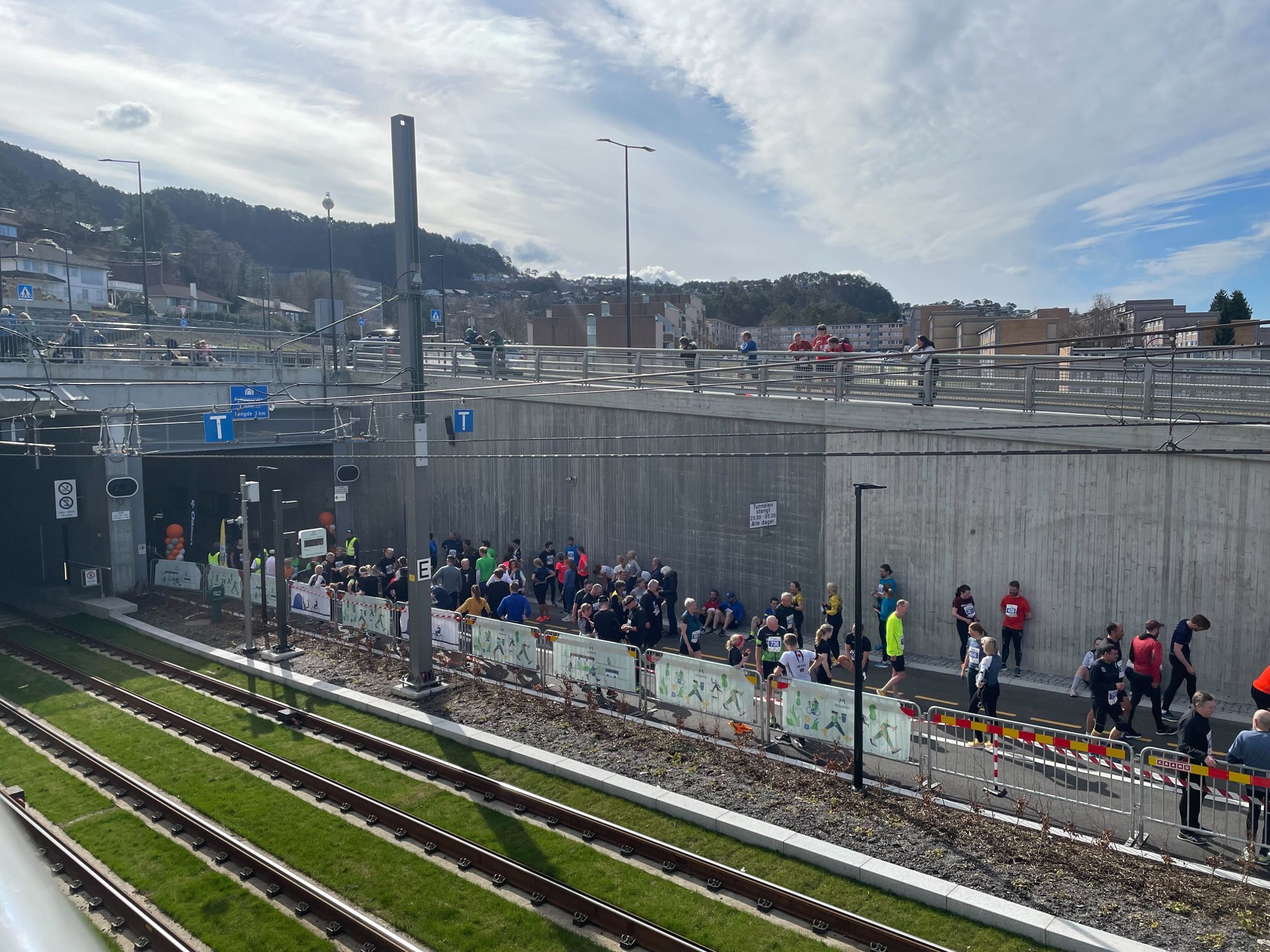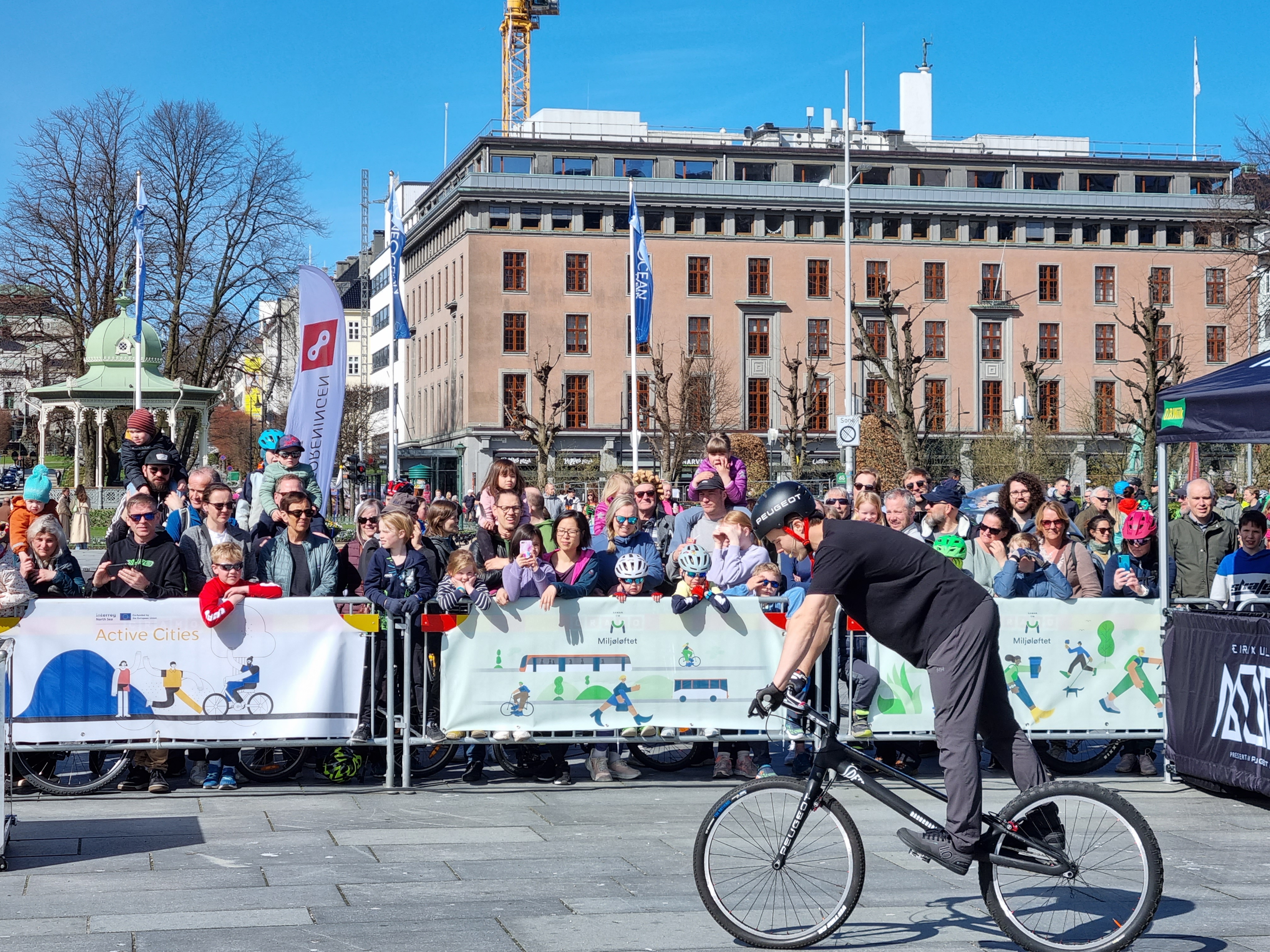The Fyllingsdalen Tunnel, located in Bergen, Norway, has gained international recognition as a significant step toward achieving a car-free future and promoting sustainable transportation.
The tunnel, inaugurated on April 15, 2023, is now considered the world's longest purpose-built pedestrian and bicycle tunnel, stretching 2.9 kilometers through the Løvstakken mountain. This innovative infrastructure project is part of the Active Cities, Interreg North Sea Region initiative, in which Bergen plays a vital role. Recently, the World Economic Forum (WEF) showcased the Fyllingsdalen Tunnel in a video promoting sustainable urban mobility solutions.
Bergen's Commitment to Sustainable Transportation
Bergen, a city in southwest Norway, has long been dedicated to reducing traffic congestion, minimizing emissions, and enhancing the quality of life for its residents. The Fyllingsdalen Tunnel project aligns with Bergen's vision of creating a car-free city center by encouraging more people to choose cycling and walking over driving. The municipality's state-supported program, Miljøløftet (Environmental Promise), provides funding for the tunnel and other cycling infrastructure projects. By improving the connectivity between the residential areas of Fyllingsdalen and Mindemyren with Bergen's city center, the tunnel aims to streamline commuting and reduce travel times.
(Video Credit: WEF)
Features and Benefits of the Fyllingsdalen Tunnel
The Fyllingsdalen Tunnel incorporates several features designed to enhance the experience for cyclists and pedestrians. It features dedicated lanes, 2.5 meters wide for pedestrians and 3.5 meters wide for cyclists. The tunnel connects seamlessly with existing cycling routes, allowing cyclists to continue their journey to the city center. By creating a safe and efficient passage, the tunnel encourages more people to embrace cycling as a viable mode of transportation.
In addition to the practical advantages, the Fyllingsdalen Tunnel contributes to public health and environmental sustainability. By prioritizing cycling and walking, the tunnel supports physical activity and exercise, promoting healthier lifestyles for residents. Furthermore, the reduced reliance on private vehicles helps decrease traffic congestion, curb emissions, and improve air quality, contributing to a greener and more livable city.

Bergen welcomed 10,000 active residents on the opening weekend of the tunnel

Residents watch the bicycle parade at the opening ceremony
Recognition from the Global Bicycle Cities Index
The Fyllingsdalen Tunnel project has gained international recognition, with the Global Bicycle Cities Index 2022 ranking Bergen among the most bicycle-friendly cities worldwide. The index, compiled by digital insurance company Luko, analyzed 90 cities across the globe based on criteria such as weather, bicycle usage, crime & safety, infrastructure, bike-sharing opportunities, and awareness events. While the Dutch city of Utrecht secured the top spot, Bergen's commitment to cycling and its investment in infrastructure earned it a commendable position. Notably, no American cities made it into the top 10, highlighting the disparity between the cycling cultures in Europe and the United States.
WEF Promotion and the Future of Sustainable Urban Mobility
The World Economic Forum recognizes the Fyllingsdalen Tunnel as an exemplar of sustainable urban mobility solutions. In a video released by WEF, the tunnel is showcased as a testament to Bergen's dedication to reducing car dependency and promoting active transportation modes. This recognition from a global platform helps generate awareness and inspire other cities to prioritize sustainable mobility and invest in infrastructure that facilitates cycling and walking.
The Fyllingsdalen Tunnel in Bergen, Norway, stands as an impressive infrastructure project that exemplifies the city's commitment to sustainable transportation. As the world's longest purpose-built pedestrian and bicycle tunnel, it offers a safe and efficient route for cyclists and pedestrians, connecting residential areas with the city center. Supported by government funding and recognized by international entities like the Global Bicycle Cities Index and the World Economic Forum, the tunnel serves as a model for other cities striving to create car-free urban environments. With its emphasis on active transportation and reduced reliance on private vehicles, Bergen's Fyllingsdalen Tunnel paves the way for a greener and healthier future.
